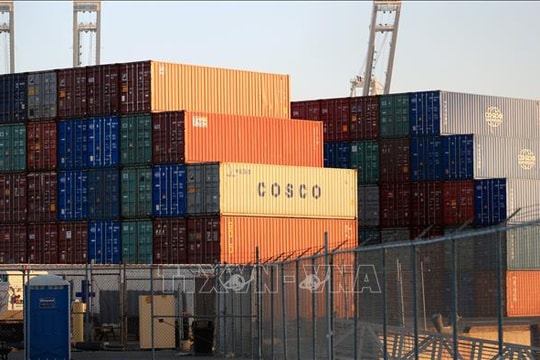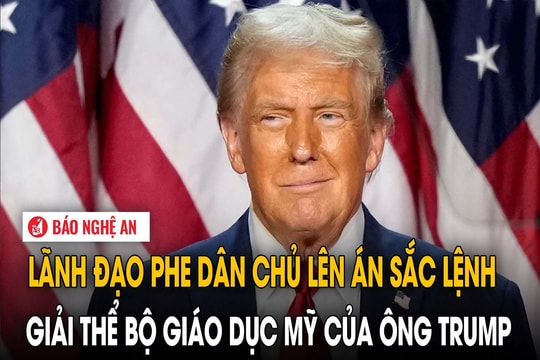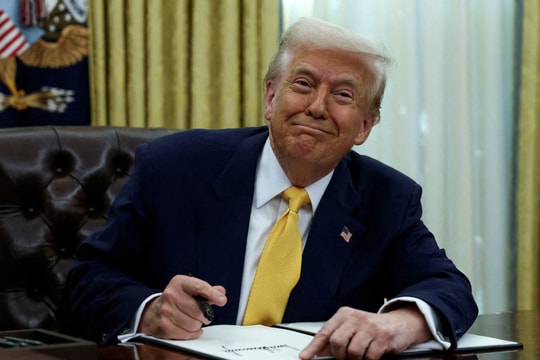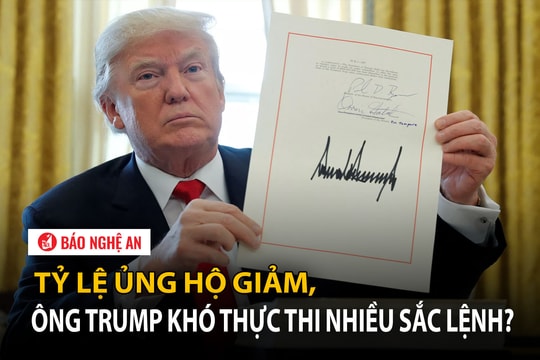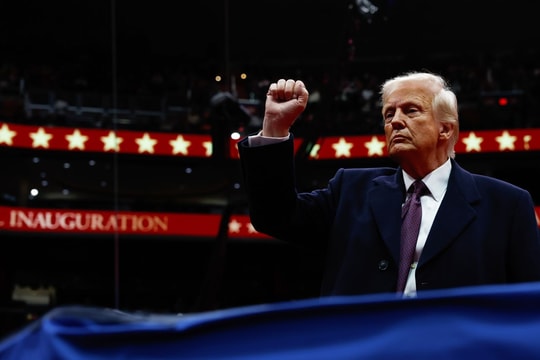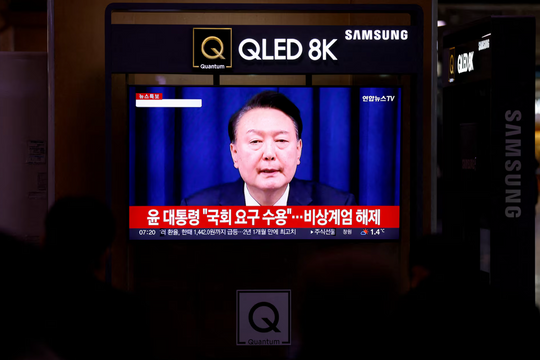Signs of a crisis?
(Baonghean) - As predicted, the United States has begun to experience the first turmoil after the executive orders of new President Donald Trump.
The legal “boxing match” surrounding the immigration ban on citizens from seven Muslim-majority countries has now become a confrontation between the federal government and the states, between the government and the judiciary. It is not impossible that this will be a constitutional crisis in the United States.
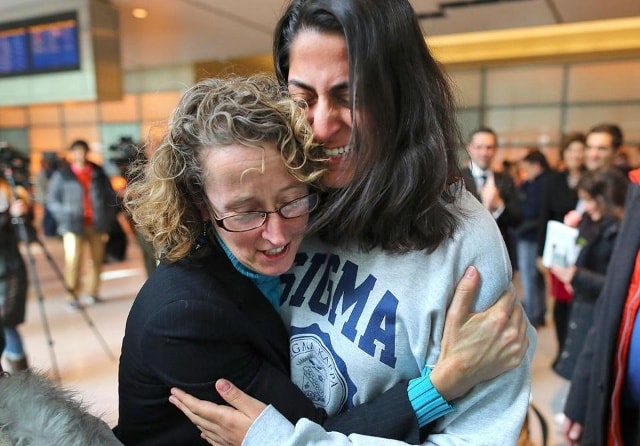 |
| Niki Rahmat, an Iranian student at the Massachusetts Institute of Technology (MIT), burst into tears upon landing at Logan Airport. Photo: Washington Post. |
Impossible and possible
The executive power of the US President is enormous. That is indisputable. President Donald Trump has been aware of this since he made his campaign promises, and especially after entering the White House.
That’s why he set a record by signing 14 executive orders in his first week as the “captain” of the United States on January 20. But now that the “honeymoon” is over, President Trump is beginning to understand the limits that the supreme executive representative cannot reach.
US Federal Judge James Robart in Seattle, Washington, on February 3 issued a nationwide stay of key provisions of the travel ban that President Donald Trump signed after taking office. The order bans people from seven predominantly Muslim countries from entering the US for 90 days and suspends the refugee admissions program for 120 days.
The ruling came after Washington and Minnesota filed lawsuits, arguing that Trump’s executive order, which targets Muslims, violates the constitutional rights of immigrants and their families. Despite resistance from the executive branch, including an appeal from the Justice Department, the decision was reaffirmed by the Court of Appeals. One of President Trump’s biggest promises has yet to take effect. And he will have to wait for the Court of Appeals to review additional information from Washington and Minnesota, as well as the Justice Department’s filing.
The reason Judge James Robart was able to block Mr. Trump’s order is because the US government is designed on a model of separation of powers: Congress holds legislative power; the President holds executive power; and the Supreme Court and lower courts hold judicial power. The purpose of separation of powers is to create a system of checks and balances. Each branch can limit the power of the other so that no one branch becomes too powerful, ensuring that the power among the three parties is balanced.
In this case, the strong advantage is said to belong to President Trump when he has the support of both houses of Congress, where the Republican Party holds the majority. Jon Michaels, a law professor at the University of California, Los Angeles, author of “The Separation of Powers, All Moving Forward,” said that President Trump’s power is strong, demonstrated by the fact that he can abolish most of the legacies of his predecessor Barack Obama without needing Congress.
But Professor Jon Michaels is not pessimistic about the prospect of this power being abused and overstepped. That’s because Mr. Trump will have to contend with the bureaucracy and the judiciary. When implementing any presidential or legislative decision, “civil society has to assess what the basis is,” Michaels said. If they don’t do that, any federal order could face legal challenges.
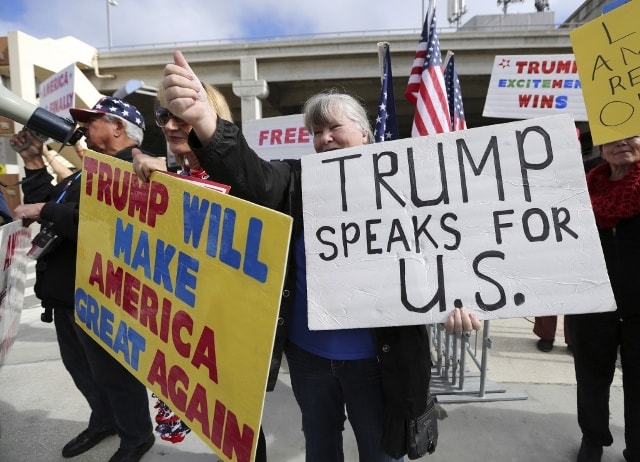 |
| Protesters support President Trump's immigration ban at Los Angeles International Airport. Photo: AP. |
The confrontation will be controlled
So what weaknesses have made the executive order banning immigrants from seven Muslim-majority countries so vulnerable and scapegoated in the Seattle court? Marci Hamilton, a constitutional law expert and religion scholar at the University of Pennsylvania, said that the uncertainty about the legal basis of the order makes it problematic.
“The US president believes that his order targeting immigrants from these seven countries is to keep the US safe from foreign terrorist threats,” Macri Hamilton explained in The Guardian. In fact, this is a matter under the authority of the White House. However, this authority is usually only exercised in emergencies, and Mr. Trump has not proven that there is a threat against the US from citizens of the seven Muslim-majority countries banned from entering.
“The president can override the Constitution by declaring a national emergency. But it has to be a serious threat, not just a potential threat from a few people from a few countries,” Hamilton said.
The US president has been accused of not providing sufficient evidence of terrorism from these countries entering the US. The CIA monitors these people constantly, and has a system for doing so. And the fact is that Mr. Trump should wait before seeking an “emergency” order. And the September 11, 2001 terrorist attacks could be an example of an emergency where the head of the US “can unilaterally close airports and people cannot enter the US for a period of time.”
So has the back-and-forth between the administration and the courts really “exploded”? Any action from the executive branch has largely come from President Trump’s Twitter statements. The Justice Department did not actually file any emergency stay against Judge Robart’s decision on February 3, thus reducing the risk of a constitutional crisis on the brink of explosion.
Until the Justice Department issued an emergency stay on Judge Robart’s ruling, the door to the United States was open again for refugees and citizens from the seven Muslim-majority countries that Trump “banned.” However, the problem remains because many other lawsuits related to Trump’s travel ban are “waiting.” The disadvantage is that under current case law, the review of this executive order in other federal courts would be biased against the White House.
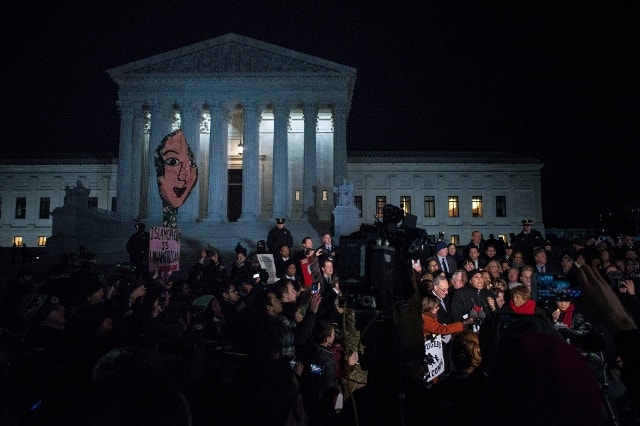 |
| 3. New Jersey Senator Cory Booker, speaking against President Trump's immigration ban outside the Supreme Court. Photo: New York Times. |
Pragmatism will decide
The world is still trying to figure out what President Trump will and won’t do as Commander-in-Chief of the United States. It’s all speculation. But one thing is pretty certain: Trump doesn’t have to do everything he’s set out to do. As a businessman, Trump is a pragmatist and will reverse his campaign promises if necessary.
For example: Consider the accusations against Hillary Clinton, withdrawing from the Paris Agreement on Climate Change. So it is possible to believe that after doing everything to win, billionaire Trump can also do everything to maintain his power. The results of public opinion polls will be the basis for the US President to adjust himself. And certainly, American voters will care more about jobs and economic growth than the Muslim ban. Mr. Trump will have 4 years to consider this before the 2020 election tests his reputation.
Phan Tung
| RELATED NEWS |
|---|

